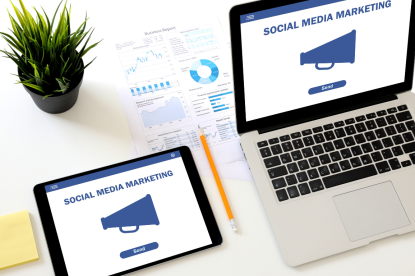Deinfluencing is a term that has emerged in recent years in response to the growing influence of social media influencers on our daily lives.

Deinfluencing refers to the process of reducing or eliminating the influence that social media influencers have on their followers.
So why did the interference occur? There are several reasons for this. First, many people are disillusioned with the content promoted by influencers. Influencers are often seen as proponents of materialistic values and upholding unrealistic standards of beauty and success.
This has led to a backlash against them, especially among younger generations who are more concerned with issues such as sustainability and social justice (millennials and Z generation).
Second, there have been a number of high-profile scandals involving influencers in recent years. These scandals included everything from promoting unhealthy products to unethical behaviour.
As a result, many people have lost trust in influencers and become less influenced, i.e. deinfluenced.
In the past, influencers had large sums of money to promote their products and services to their followers. However, as the trend toward diminishing influence grows, influencers are finding it increasingly difficult to maintain their influence over their audiences.
Deinfluencing – What changed?
This has caused many changes in the way influencers approach their work. For example, many influencers are more focused on creating authentic and meaningful content that resonates with their followers.
This includes sharing personal stories and experiences and promoting products and services they truly believe in.
Another change is how influencers are rewarded. Traditionally, influencers have often received large sums of money from brands to promote their products on social media. However, as influencers become more commonplace, brands are becoming more selective about who they partner with.
They look for influencers who have a genuine connection with their audience and who are seen as trustworthy and authentic. This has led to a shift towards long-term partnerships between brands and influencers.
Instead of paying influencers for a single post or campaign, brands are now looking to build an ongoing relationship with them.
This allows influencers to create more authentic content that resonates with their followers. while providing brands with a more effective way to reach their target audience.
From the audience’s point of view, deinfluencing is seen as a positive trend. Many people are fed up with the flood of commercials he messages on social media and is looking for more credible and meaningful content.
This has increased demand for content created by people who aren’t necessarily professional influencers, but who have a genuine passion for a particular topic or niche.
However, from the perspective of an audience looking for more authentic and meaningful content on social media, this is also a positive trend. Ultimately, de-biasing represents a shift to a more authentic and authoritative form of social media content, which is good for all of us.
One of the main drivers of deinfluencing is the growing awareness of the impacts social media has on mental health. Many people are starting to realize that the constant barrage of images and messages they receive on social media can be overwhelming and stressful.
This has led to a demand for more balanced and positive content on social media, less materialistic and more focused on health and self-care.
In response to the deinfluencing trend, many influencers have started sharing more personal and vulnerable content on their social media channels. This includes everything from mental health issues to body positivity to self-love.
By sharing these experiences, influencers can connect with their followers on a deeper level and build more trusting and meaningful relationships.
Another important factor in increasing of deinfluencing is the growing awareness of social media’s impact on the environment.
Many question the sustainability of the fast fashion and beauty industries, which are often promoted by influencers. This has led to an increased demand for more sustainable and ethical products and a growing interest in green lifestyles.
In response to this trend, many influencers are promoting sustainable and ethical brands and products on social media channels. This includes everything from zero-waste products to ethical fashion brands to eco-friendly lifestyle choices.
By promoting these products, influencers can align with the values of their followers and build a more meaningful and influential brand.
Overall, decluttering / deinfluencing represents a shift towards more conscious and responsible social media content, in response to growing awareness of the impacts social media has on our mental health, the environment, and society at large.
While a challenge for influencers, it also presents an opportunity to create more authentic and meaningful content that resonates with their followers on a deeper level.
In summary, deinfluencing is a complex and multifaceted trend that is reshaping the world of social media. This presents a challenge for influencers who need to adjust their approach to maintain their impact on their audience.
But it’s also an opportunity to create more authentic and meaningful content that aligns with your followers’ values.
Ultimately deinfluencing is a positive trend that reflects a growing awareness of the impact social media has on our lives and society and a desire for more conscious and responsible content on these platforms.
Is a trend that has emerged in response to the growing influence of social media influencers. This poses a challenge for influencers who need to adjust their approach to maintain their impact on their audience.



